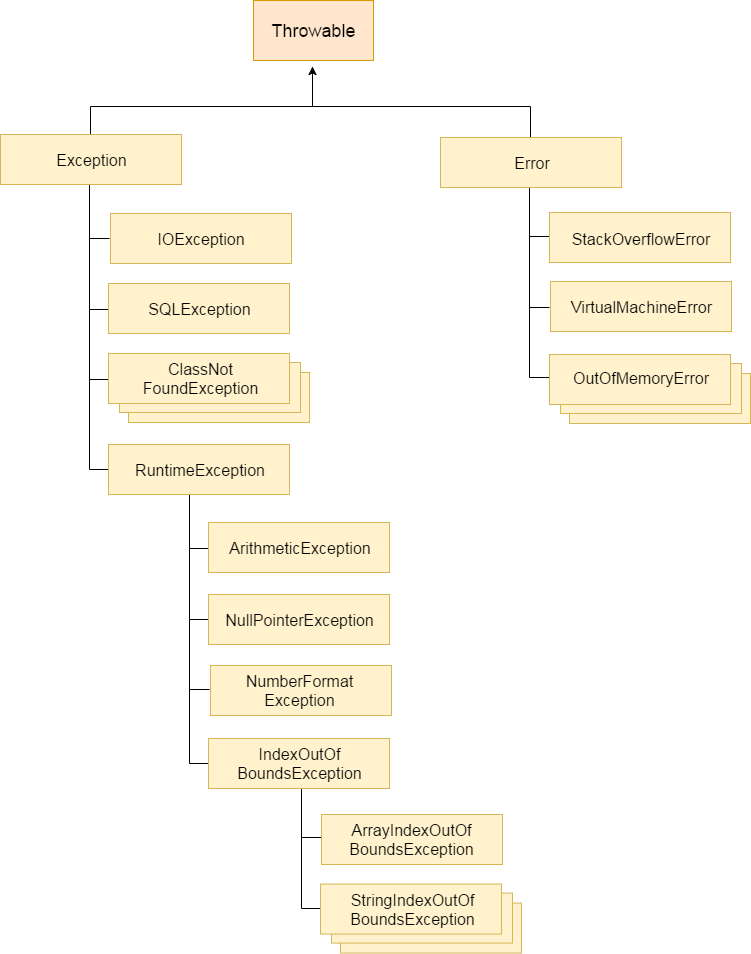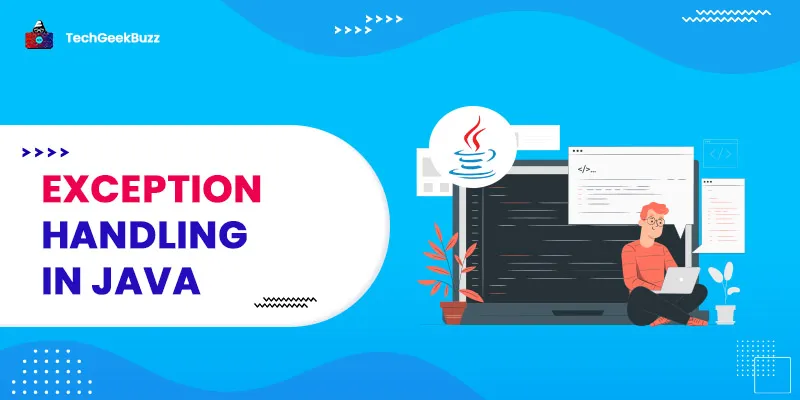This is the most significant procedure in Java that allows you to handle the runtime errors to maintain the normal flow of the application or the program. An exception is an unexceptional condition that occurs to disrupt the application or the program flow. With the help of exception handling, you can manage the runtime errors that occur during the execution of the program.
Advantages
You will be able to maintain the normal program flow with exception handling. For example, if there any error occurs in between the program, then the rest of the program will not be executed but if we handle that exception, then you can run the remaining statements f the program.
Java exception class hierarchy
The java.lang.throwable is the base class that is inherited by two subclasses- exception and error. Below is the hierarchy of the java exception classes:

Different types of Java exception
The three different types of exception are-
Checked exception
The class which will inherit the throwable class directly are known as the checked exception and is generally checked at the compile-time.
Unchecked exception
The class that will inherit the RuntimeException are known as the unchecked exception and is checked at the runtime.
Error
Error is irrecoverable and will occur if the flow of the program failed.
Java exception keywords-
- Try- the try is a keyword that will specify the code block where the exception code will be placed. You cannot use the try block alone; it should be followed by either catch block or the finally block.
- Catch- this block will be used to handle the exception that is thrown within the try block. Also, you cannot use the catch block alone; it should be preceded with the try code block and should be followed by the finally block.
- Finally- this block will execute the critical code irrespective of the exception raised or not.
- Throw- using this keyword you can throw an exception.
- Throws- you can declare exceptions using the throws keyword.
Example
import java.util.regex.*;
public class Simple{
public static void main(String args[]){
try{
int data=100/0;
}catch(ArithmeticException e){System.out.println(e);}
System.out.println("remaining code");
}
}
Output

People are also reading:
- Java For Loop
- Scanner in Java
- Java Map
- While Loop in Java
- History of Java
- Java Do While Loop
- C++ vs Java
- Java Cheat Sheet
- Java Interview Questions & Answers





Leave a Comment on this Post